Better Than Most is a regular feature of The Business of Giving examining the best places to work among social businesses and nonprofit organizations.
Denver: And this evening, we’re going to take a trip down to Crystal Drive in Arlington, Virginia and visit the offices of Communities in Schools. We’ll begin with their President and CEO, Dale Erquiaga, and then we’ll get some wonderful insights from members of the CIS team.
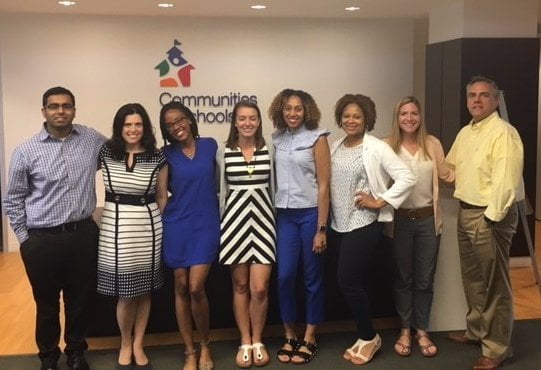
Dale: Communities in Schools is the nation’s largest and most effective dropout prevention program. We keep kids in school and on track to graduate by surrounding them with support. So for me, it’s a natural extension of that work that our own corporate culture reflects that same sense of support. People here genuinely love their work. They’re mission-driven and they reflect that same sense of mission in each other. These are folks who get along and they get to work every single day on a cause that matters most to our country and I think you see that in the people who work here. As the leader of this organization, I’m new to the organization so I inherited the culture. And I can tell you it’s the greatest inheritance that any CEO could ask for.
Kamila: And that is the fact that overworking is not celebrated. I think that we live in a culture where people want to be like the first person in and the last person out. And in the times where I have done that, I literally get called out by my manager, Steve, like, “What are you still doing here? What were you working on? It can wait! Why are you still here?” And so I think efficiency is celebrated here. I think finding simpler ways of doing things that don’t take as much time… There’s a culture of excellence where the product, I think, people put a lot of work into it to make sure that what they’re doing is a good representation of Communities in Schools. But just being here all the time and overworking and over-exceeding yourself is not celebrated. I think that’s what really encourages a good work-life balance because it’s not seen as a good thing if you’re always here.
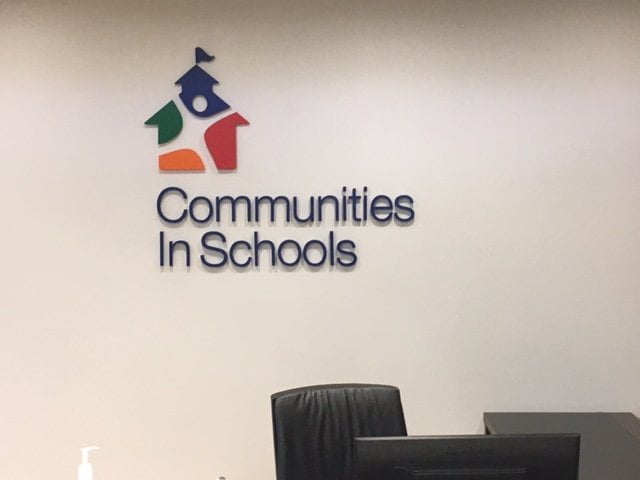
Alice: And in our last space, all of the senior offices were around the outside walls, so all the windows were blocked. It just happened to be the way that office was configured and so when we moved here, the senior management team said, “Let’s make all of the offices internal and have them be glassed, so everybody can enjoy all of the windows… And the best view in the whole place is our employee break room and our kitchen so that everybody can sit and see the river and just have as much as natural light as possible.”
Tiffany: I can’t help but remember within the first few months that I started about four or five months into starting with Communities in Schools, my father passed away which is incredibly a trying time for anyone, but especially if you’re starting a new job and have an incredible amount of responsibility. And when I talk about how much Communities in Schools values their employees, I think about the support that I got from my boss and my colleagues when we had an incredible amount of work going on preparing for conferences and [hill days]. There were other folks in the office who weren’t at all responsible for leading this work who just automatically took over and helped produce everything so that by the time I came back, a lot of things were already in place. And I think that says a lot about the organizational culture.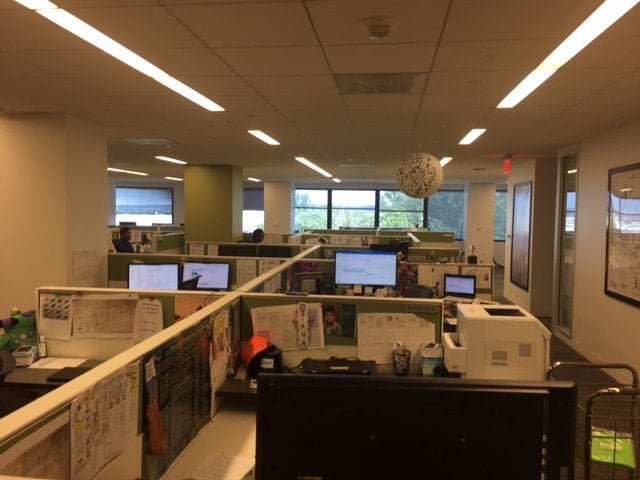
Dawn: What I’ve been struck with in my time here is the significant degree of authenticity and transparency that exists particularly within our CEO and senior leadership team. Everything from being very open in the direction of where the organization is headed in the future to sharing personal stories and experiences with staff members demonstrating. There’s a real sense of vulnerability that the leadership team are willing to share and staff has responded very, very positively to that. You don’t see that with a lot of leaders. What struck me as a new employee here is that there is no ego that exists within this organization and having worked in HR for a long time, that’s very, very rare. We spend a lot of time identifying, thinking through our values and competencies as an organization and then providing ongoing training and development to ensure that everyone is on the same page and shares the same values. And I think that degree of transparency is really what has helped this organization get to where it is and will help it continue to be successful.
Crystal: Being able to have individuals work on what they enjoy most. Some people may be creative as far as planning events or maybe in the policy world, we allow different no matter the department we allow them to do that type of work. So when I’m recruiting and hiring, those are the types of perks and things that I explain to my candidates; that we offer an environment where it’s collaborative but in the same sense we allow you to do more of what you like and so that you’re not sticking to that one thing.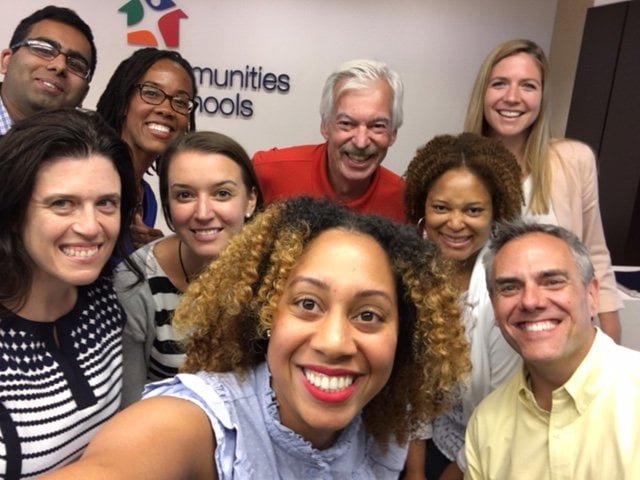
Meghan: When I first started, I came on as the Executive Assistant to our former CEO. And he announced that he was leaving about a month or two after I started, so it was kind of a weird introduction to CIS. And it made me really nervous because I wasn’t sure what would happen to me as he left. And I remember our Chief Strategy Officer sat down with me and had a conversation and she really took the time to make sure that I felt supported, and that I knew that I was going to have a home at CIS no matter what happened. And she really talked to me and found out what my interests were and that’s how I landed in Government Relations because she really identified where I would be a good fit and helped me [land]. So I think that that story just kind of really underscores exactly how much this effort to have a culture of supporting and empowering employees really comes from the people at the top.
[Tahir]: So the organizational took the effort itself to see that diversity, equity, and inclusion as the topic of our times and we were like, “Okay, we need to also look at this and how we’re related to this larger national conversation.” And we took the effort to look in within our network on how we serve our students, how our affiliates run themselves, and how also the national office run themselves, and I think what’s really interesting about it that the whole initiative is employee-led so people volunteer for this committees and they have genuine serious conversation about what are these issues that exist and how do we best approach them and solve them in a way that includes everyone in the conversation.
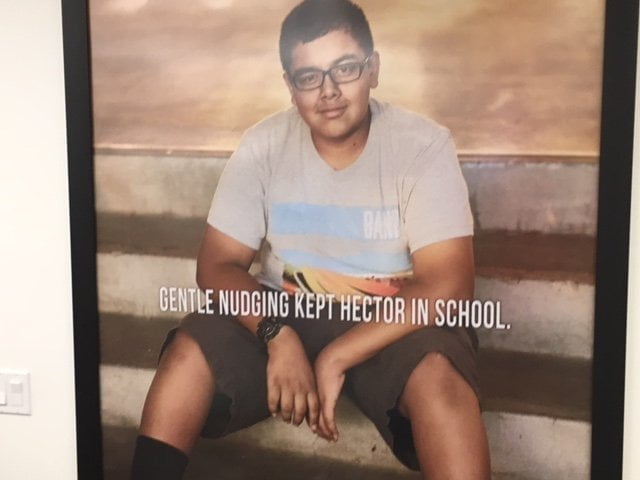
Patti: Denver: I want to thank all those who participated in this segment; Dale Erquiagua, Meghan Lustig, Kamila Thigpen, Alice Butler, Tiffany Miller, [Tahir Ahmad], Dawn Godaire, and Crystal Gonzalez. If you should want to hear this again, read the transcript and see pictures of the participants and the offices of Communities in Schools. They’re all there waiting for you at denverfrederick.wordpress.com.
Dawn: I would say the bottom line is what really makes the CIS culture so unique is its people. It’s what everybody said here. I mean it’s the fact that the people are friendly and smart and committed to the work that we do. And as an organization, we will continue to be strong if we remain very diligent and understanding what our culture is and making sure we bring in the right talents that embodies those values, and I think so far that we have done that well, but I think it’s really important for other non-profits to understand. It is the people that will make you successful, the rest of it you can teach or develop.
Denver: I want to thank all those who participated in this segment; Dale Erquiaga, Meghan Lustig, Kamila Thigpen, Alice Butler, Tiffany Miller, [Tahir Ahmad], Dawn Godaire, and Crystal Gonzalez. If you should want to hear this again, read the transcript and see pictures of the participants and the offices of Communities in Schools. They’re all there waiting for you at denverfrederick.wordpress.com.
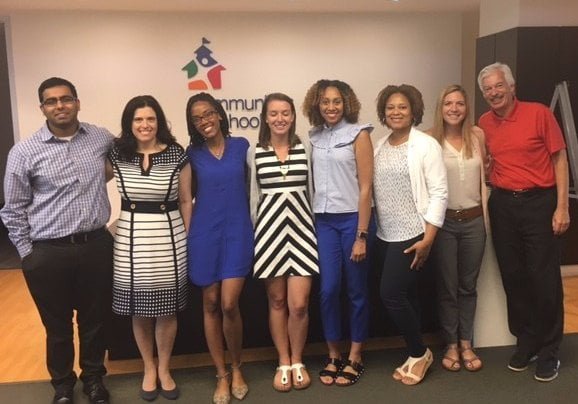
The Business of Giving can be heard every Sunday evening between 6:00 p.m. and 7:00 p.m. Eastern on AM 970 The Answer in New York and on iHeartRadio. You can follow us @bizofgive on Twitter, @bizofgive on Instagram and at http://www.facebook.com/BusinessOfGiving

